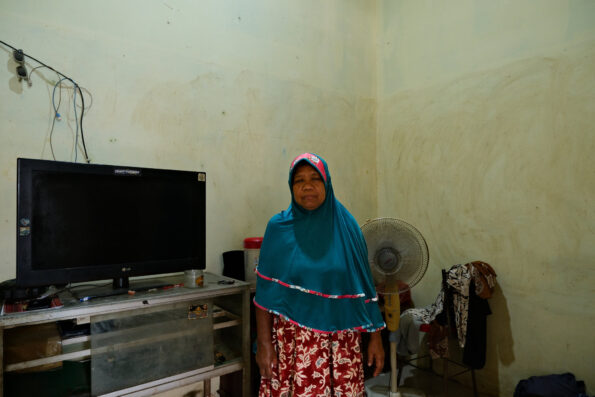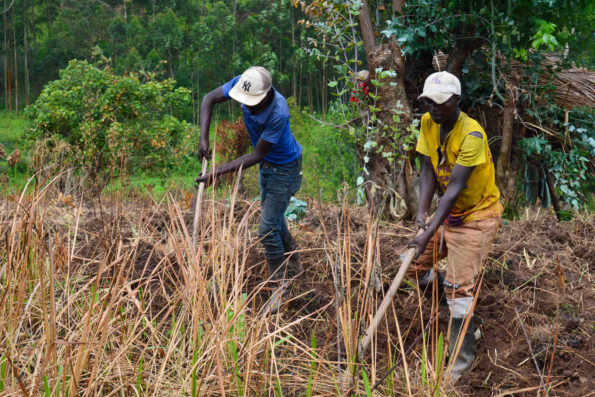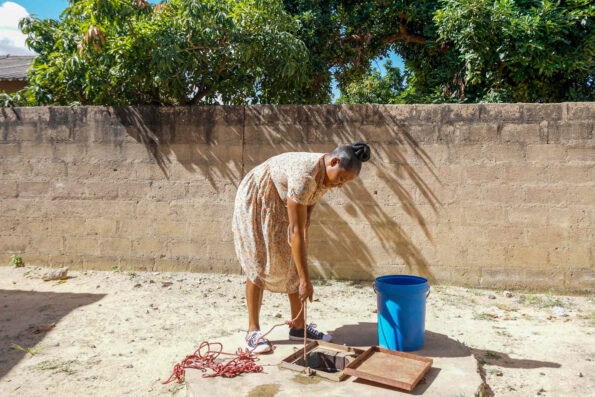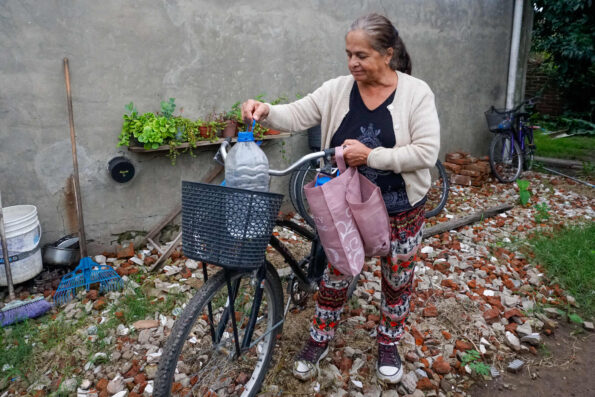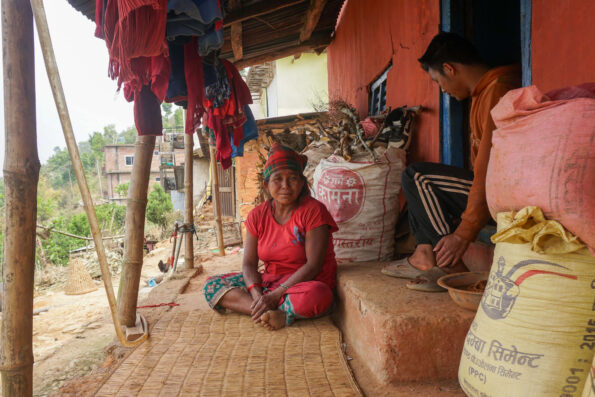
KEDJOM KEKU, CAMEROON – Flowers formed a fence around the chief of Kedjom Keku’s compound this month in honor of World Rural Women’s Day. Traditional decorations filled the compound, the site of the day’s main celebration in Cameroon’s Northwest region.
Celine Awounti, 49, is one farmer who participated in the day’s events.
“I cannot express the joy I have to be a part of such important celebration in my community,” she says.
Awounti says she never imagined that the regional celebration for such a day would take place in her village.
“I thought celebrations like World Rural Women’s Day is not meant for women like us in Kedjom Keku,” she says.
TV stations came to the village to film the festivities.
“I used to see the celebration on television,” Awounti says, “and I used to think that it is only for the rural women in the urban areas. I never knew I would one day be on television for this event.”
Awounti spends almost all of her time farming. She is married with children and uses her earnings to supplement the family’s income.
Representatives from governmental and nongovernmental agencies spoke at the event about the year’s theme, Rural Women: Claim Your Space in Mitigating and Adapting to Climate Change. She says the annual day is important because it teaches the rural women about sustainable farming techniques.
“Today, through one of the speakers, I have learned how to use good farming techniques and how to fight against climate change,” she says.
Awounti says many more World Rural Women’s Days should be celebrated in Kedjom Keku because it takes the women away from their busy farming tasks and put them in a celebratory mood.
Female farmers from Kedjom Keku say they will remember the regional celebration of World Rural Women’s Day in their village all their lives. Representatives from the government and nongovernmental organizations presented information to the women about farming techniques to combat climate change and to produce high yields.
World Rural Women’s Day, also known as International Day of Rural Women, takes place annually on Oct. 15. In Cameroon, the Ministry of Women’s Empowerment and the Family organizes the day’s celebrations.
Each regional delegation of the ministry organizes a celebration in a different rural community in each of Cameroon’s 10 regions every year. This year, Kedjom Keku hosted the Northwest region’s celebration.
Among the major activities were the exhibition of food crops and traditional dances by local women.
Mary Akumu, a farmer in rural Kedjom Keku, took part in one of the traditional dances on the day. Akumu says she felt as if she were in a whole new community because of the activities that took place on the day. She says that government officials ranging from the governor of the region to the ministry’s regional delegate came into Kedjom Keku in big cars, a rare sight in the rural area.
“I am so happy to be a part of this kind of important celebration,” she says. “I will live to remember it all through my life.”
Stanislaus Sofa, the mayor of the Tubah Rural Council, which governs Kedjom Keku, says the local women are adapting to climate change, even if they don’t realize it.
“Rains came early this year, women planted their crops, the rains disappeared, and the crops died,” he says. “When the rains came again, the women replanted their crops, and in the end, they had a normal harvest. I think the women of Kedjom Keku are already adapting to climate change. This should give them a major reason to celebrate this day.”
The mayor says the government is supporting the women through inviting experts to talk about combating climate change and employing methods of farming that will encourage high yields.
Gilbert Malung, founder of a nongovernmental organization called Center for Environmental and Community Support Education, spoke at the event about climate change.
He said that cutting down trees, which absorb carbon dioxide, contributed to climate change. This has led to high temperatures, which have reduced agricultural yields. He called on the women to plant trees to reverse this.
“I am available at any time to offer support to women who want to involve in tree planting,” Malung says. “I am willing to offer expert advice on the type of trees to be planted and also on how and where to plant them.”
Malung says he works in collaboration with the regional delegation of the Ministry of Women’s Empowerment and the Family and that those interested in receiving support can contact him through the delegation.
Tchakam Billy, a member of Cercle International pour la Promotion de la Création, an environmental nongovernmental organization, spoke about farming techniques at the event. He advised rural women to collaborate with cattle herders from the Mbororo tribe in the region on a night paddock farming technique. He says women should build fences around their farmlands so the herders’ cattle can sleep there at night and fertilize the land with their dung.

